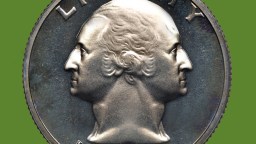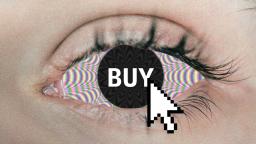Like it or not, banks — and the bankers they employ — hold incredible sway over the economy of the world. The former Finance Minister of Greece, Yanis Varoufakis, has a great way of describing how they continue to consolidate this huge amount of power. He posits that bankers time travel. Not by a DeLorean traveling at 88mph, but by taking value from the future—for instance, how much the housing market is going to be—and apply it to the present to essentially create value out of thin air. It’s economic black magic. And it can lead to major consequences for the rest of us… but rarely for the bankers themselves. Yanis’s new book is the fascinating Talking to My Daughter About the Economy: or, How Capitalism Works-and How It Fails.
Yanis Varoufakis: Ever since humanity emerged, we've all had debts to one another. We are a collaborative species. We survived the evolutionary struggle in the jungle and in the steppes, in the desert only through collaboration.
Collaboration requires reciprocity. I do something for you today, you do something for me tomorrow. That is a debt. It’s a form of debt but it’s a nonfinancial, noneconomic debt. It’s an ethical debt. It’s the good side of debt.
As society became commodified and all activity started getting channeled through the anonymous market most of this reciprocity took the form of financial debt. What turbocharged the economy once the economy got separated from society through this process of commodification was banking.
Because, let’s face it. Bankers have a fantastic power over the rest of society by definition, by way of existence, to create money. When you get a loan from a bank it is a crazy idea that you are getting it from “somebody else”. You’re not getting it from somebody else. It is not true. This is a major fallacy that occupies most people’s minds, infects most people’s minds, that you are being given money that somebody has saved. That is not true. What the bank does it creates money from thin air. It just types into your account, you know, $20,000 if you borrow $20,000. It comes literally out of thin air.
And the hope of the banker is you will be able to repay it, because what happens is you take that $20,000, you buy equipment for your studio, you buy a new bicycle, a new car, whatever. So the money goes from your bank account to the bank account of the company or the person that sold you something.
And the idea is that through this circular flow of income and through this economic activity a new income is going to begin, new value will be created. You will be able to repay the bank. The bank will have obtained the interest and therefore the bank is going to profit. So the more they lend to you the more profits they make.
So it is a little bit—and that’s why I’m trying to explain to my daughter in the book—It’s a little bit like the bank is having a capacity to push their arm through the timeline into the future and grab value that has not been created yet, bring it to the present, invest it into some productive activity, hopefully to create the value that we need to replay the future.
But to the extent that this is successful—and it has always been successful—bankers suddenly get the idea that the more they reach into the future, the more value they snatch from the future to bring it into the present, the greater their own personal profit. But when they overdo it—and, of course, they always overdo it, they overreach—they take too much value from the future, bring it into the present. That value is not realized, and then you have a banking crisis.
And because they play such a crucial and powerful role in society they have the political clout – political clout that you and I don’t have because they usually are the ones for finance our politicians to get elected to congress and so on—that can use the political system in order to have themselves bailed out—you know, socialism for the bankers, and austerity for everybody else.






